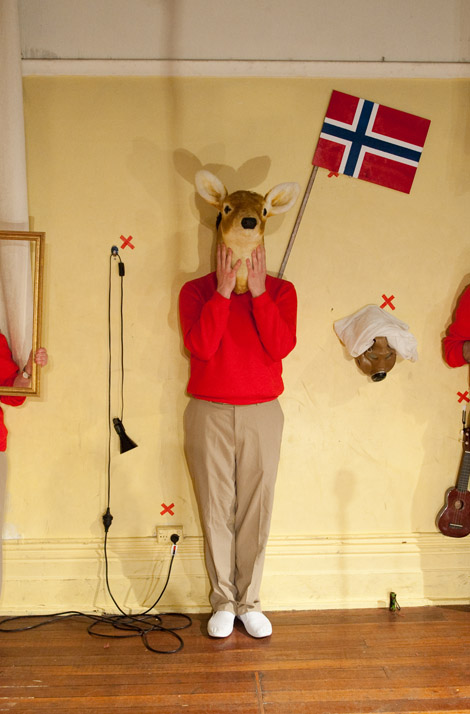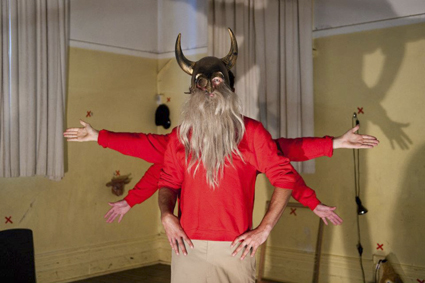an intelligent and considered piece of theatre

The Economist | Review
John Bailey | RealTime Arts
Issue #107 Feb-Mar, 2012
SOME OF THE MOST COMPELLING DIALOGUES I ENCOUNTERED LAST YEAR—WHETHER IN PERSON, ON STAGE OR WRITTEN—CENTRED ON ISSUES OF AGENCY AND AUTHORITY IN ARTISTIC PRACTICE. WHO HAS THE RIGHT TO TELL A STORY THAT ISN’T THEIRS, AND TO WHAT RESPONSIBILITIES MUST THEY ATTEND? CAN A GROUP OR INDIVIDUAL OWN AN EVENT, OR IS ALL EXPERIENCE BORROWED? CAN A SENSITIVE, COMPASSIONATE ARTICULATION OF ANOTHER’S VOICE ENACT ANOTHER FORM OF SILENCING?
mka theatre, the economist
The most public of these conversations stemmed from MKA Theatre’s final production for 2011, The Economist. Before the work had even premiered, a slew of outrage arrived from Melbourne’s Herald-Sun newspaper and carried over onto talkback radio. Calls were made to prevent the piece from opening, and its makers were afforded any number of unenviable descriptors in angry letters to the editor. The play, it was alleged, extended sympathy to Norwegian mass murderer Anders Behring Breivik, and drew comparisons between the killer and various right-wing Australian politicians and commentators. It all apparently highlighted the key problem with the arts in Australia, where lefty bureaucrats are happy to throw money at ‘depraved’ artists if their shock tactics further the anti-conservative agenda.
Of course, it was all a media beat-up, and anyone who saw The Economist quickly realised how skewed the commentary had been. Indeed, the piece subsequently received almost universal praise, though this may have been the result of theatre critics’ own sinister position as fifth columnists. But the work was an intelligent and considered piece of theatre, self-conscious of its own tinderbox nature and employing a range of techniques to prevent anyone from interpreting it as anything close to an apologist screed.
The play is largely a faithful biography of Breivik, with little if any editorialising on the part of the playwright. If his motives or mentality bear some correspondence to members of Australian society, it’s mostly left for the viewer to decide. Indeed, the restraint displayed here by writer Tobias Manderson-Galvin—already known for pushing the envelope of taste—is more than admirable, especially given the tendency for much theatre in Melbourne to explain how a particular production is supposed to be interpreted.
Again, though, there’s no sympathy for the devil here. In sticking to the facts, The Economist indicates how Breivik’s story is pathetic, in the vulgar sense, while utterly lacking in pathos. It’s a clinical exploration of the way social rejection is institutionally acceptable, and how an obviously angry, alienated and potentially sociopathic individual can still be accommodated by gun-club camaraderie, videogame violence and the phobic outpourings of likeminded souls in the online fora.
Van Badham’s direction gives the piece the theatrical nuance it really requires, drawing on a raft of post-Brechtian devices to prevent any restrictive readings. The casting is mostly cross-gender, musical numbers interrupt without warning, and the pacing and delivery never allow the work to fall into the trenches of Tragedy or Comedy. It’s essential that this occurs, since The Economist’s proximity to the real events that inspired it means that it would be all too easy to produce something with a mythologising effect. I don’t know that I’d recommend the production to someone with an immediate connection to the recent horrors it addresses, but it does no violence of its own.
“an intelligent and considered piece of theatre”

